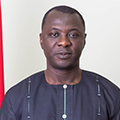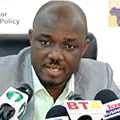
Joint Seminar Energy Strategies in Africa: Identifying the Challenges and Addressing the Priorities
Accra, Ghana
IMANI Center for Policy & Education and OCP Policy Center are co-organizing the first Strategic Dialogue on the theme “Energy Strategies in Africa: Identifying the Challenges and Addressing the Priorities” in Accra, Ghana on September 25, 2018.
This conference seeks to bring together different energy specialists, professionals, and academics to discuss relevant issues pertaining to the energy sector in Africa. This event will include participants from both the private and the public sector in order to promote diverse discussion on energy access. The event also aims at exploring the potential of renewable energy to meet Africa’s energy supply, the opportunities and challenges in financing energy access in Africa, exploring the role of oil and gas in facilitating energy access, as well as exploring the benefits of greater regional integration of the energy sector.
As Africa continues to develop and seek innovative ways to address its current energy access gap, energy specialists also anticipate that the rise in future energy demand on the continent will require a greater energy mix. The increased use of renewable energy in the African energy mix aims to address Africa’s energy challenges through the availability of cost-effective energy resources. It is crucial that experts and specialists consider which methods are most effective in bringing about increased integration of renewables in the African energy mix, as well as the challenges that Africa may encounter in a future where renewables are a vital part of the African energy mix.
Chief among the challenges in realizing greater energy access and energy diversification is the lackluster predicament of energy finance in Africa. This is primarily due to Africa’s poor creditworthiness image, which can deter potential investors from getting involved in the African energy market. This is cause for concern as it is widely agreed amongst energy professionals that public-private sector engagement is key to unlocking increased energy access in Africa. We must therefore consider improving Africa’s creditworthiness image as a top priority to facilitate an appealing energy market to an array of potential investors. As achieving this goal is not clear enough, it is equally important for Africa to embrace innovative finance to support its promising energy market. When it comes to the diversification of the energy market, innovative finance is also a tool to encourage the creation of an African energy mix capable of meeting increasing energy access, rising future energy demand, and creating affordable energy resources. In recognition of the reality that meeting global future energy demand requires a significant portion of the global future energy mix to be comprised of oil and gas, it follows that Africa should critically consider the role that oil and gas will play in its own energy mix. Increasing the role of oil and gas in the African energy mix will relieve Africa of its current heavy reliance on biomass to meet its energy needs, subsequently improving the overall quality of life for populations heavily reliant on biomass.
Greater regional integration on the continent is also key to achieving progress within Africa’s energy sector. This approach is not only the most cost-effective method, but also a strategic method to diversify the energy mix for various African nations. Presently, the centralization of Africa’s energy resources tends to favor the wealthy and leave the poor disenfranchised. Greater regional integration of the energy sector is necessary in order to bring about greater energy access for and meet the needs of people at all socio-economic levels.
IMANI and OCP Policy Center welcome your attendance at the first joint Imani – OCCPC event in Accra, Ghana, as the two think tanks seek to foster a stronger relationship with each other. We welcome your knowledge, professional expertise, and input as we critically consider the opportunities and challenges that face the African energy sector.
Agenda
|
09:15 – 09:30 |
REGISTRATION AND COFFEE |
|
09:30 – 09:45 |
WELCOMING REMARKS |
|
09:45 – 10:45 |
SESSION I: THE POTENTIAL OF RENEWABLE ENERGY TO MEET AFRICA’S ENERGY SUPPLY Chair Speakers |
|
10:50 – 12:00 |
SESSION II: FINANCING ENERGY ACCESS AND INFRASTRUCTURE IN AFRICA; THE OPPORTUNITIES AND CHALLENGES Chair Speakers |
|
12:05 – 13:10 |
SESSION III: EXPLORING THE ROLE OF OIL AND GAS IN FACILITATING ENERGY ACCESS AND EXPLORING THE BENEFITS OF GREATER REGIONAL INTEGRATION OF THE ENERGY SECTOR Chair Speakers |
|
13:10 – 14:00 |
LUNCH BREAK AND NETWORKING |
Keep me informed
-

Ishmael Ackah
Technical Adviser on Energy, Ministry of Planning
Dr Ackah holds a PhD in Energy Economics and Policy from the University of Portsmouth, UK, and MSc. in Energy Economics and Policy from the University of Surrey, Guildford, UK. He has more than 20 peer refereed publications in Renewable and Sustainable Energy Reviews, OPEC Energy Review, International Journal of Energy Sector Management and Insight on Africa, OGEL. Dr Ackah currently coordinates the petroleum revenue information system (PRSI) with Dr Joseph Asenso (Ministry of Finance) and serves as a
member of the Inter-Agency Modelling and Analysis Team (IMAT). He has developed a baseline petroleum governance index that measures the state of oil and gas governance prior to the operations of the Ghana Oil and Gas for Inclusive Growth. Prior to this, he served as the Head of Policy Unit and a Policy Advisor at the Africa Centre for Energy Policy (ACEP) for more than two years. He is an Adjunct Lecturer at the Institute of Oil and Gas Studies, University of Cape Coast, and the Department of Economics, Kwame Nkrumah University of Science and Technology. -

Wisdom Ahiataku-Togobo
Director of Renewable and Alternatives Energies, Ministry of Energy
Mr Wisdom Ahiataku-Togobo has a BSc degree in Physics and Mathematics from the University of Ghana, Legon and an MSc degree in Renewable Energy from the University of Oldenburg, Germany; He also has a post graduate Diploma in Economics from Queens University, Kingston Canada. He has over 20 years experience in renewable energy for developing countries and solar PV electrification in particular. He is currently the Director of Renewable Energy at the Ministry of Energy, Ghana and was very instrumental in the development and passage of Ghana's Renewable Energy Act (Act 832). Mr. Togobo is a visiting lecturer and has a number of publications, articles and reports on renewable energy and sustainable development to his credit.
-

DR. Mohammed Amin Adam
Deputy, Minister of Energy
Before then, he was the Founder and Executive Director of the Africa Centre for Energy Policy (ACEP). He previously worked in other public and private organizations as - an Energy Policy Analyst at the Ministry of Energy in Ghana, Commissioner of Ghana’s Public Utilities Regulatory Commission; a former Deputy Minister of State for the Northern Region; and former Mayor of Ghana’s third city of Tamale. He was also the Africa Coordinator of extractives industries in Ibis. Globally, he has worked extensively on extractive industries and resource management. In Africa, he has worked on petroleum policy and resource governance projects in Liberia, Sierra Leone, Uganda, Tanzania, South Sudan and Kenya; advising governments and supporting parliamentary committees and CSOs. In Ghana, he was a member of the Technical Committee set up by the Government of Ghana to review the Ghana Petroleum Revenue Management Act. He has also played advisory roles to a number of private sector operators in Ghana - as Chairman of Frontier Energy Africa Limited; Member of the Board of Ghana’s first private oil and gas mutual fund – the Weston Oil and Gas Fund; and Member of Zoil Oil Waste Services which is providing offshore waste management services in Ghana’s oil industry. Dr. Adam holds a PhD. In Petroleum Economics from CEPMLP of the University of Dundee in the UK specializing in petroleum fiscal systems and contracts, fiscal policy in resource-led economies; and resource governance. He also holds an MPhil (Economics) and B.A. (Hons) Economics from the University of Cape Coast; and is a Fellow of the Institute of Certified Economists of Ghana (ICEG). -

Barbara Andoh
Energy Policy Analyst, IMAMI Center for Policy and Education.
Experienced in providing rigorous quan titative and qualitative analysis of pertinent energy sector policies and issues in Ghana as well as the application of strategic advocacy to inform and influence government energy policy and laws. Her work focuses on examining government policy regarding mainstream processes along the oil, gas and mining value and decision chains. She has actively participated in and contributed to stakeholder dialogue on key energy sector and related policies. Her main research interest is exploring the energy-poverty/inequality nexus particularly; operationalizing proceeds of extractives mainly oil, gas and minerals for economic growth and development and reducing poverty and inequality through provision of access to energy for all.
-

Rim Berahab
Economist, OCP Policy Center
Rim Berahab is an economist at the OCP Policy Center, a think tank based in Rabat. She is currently working on issues related to international trade and regional integration in Africa. Her areas of research focus also on energy issues and the opportunities of renewable energy for Africa as well as economic growth and gender inequalities issues. Rim published several articles related to trade and FDI between Morocco and Sub-Saharan Africa. Recently, she coauthored a book -supervised by Pr. Pierre-Richard Agénor- on gender inequalities, public policies and economic growth, and she published various articles on the climate change-economic development nexus. Rim was a visitor at the International Monetary Fund (IMF) within the Commodity Unit of the Research Department for three months. She holds an engineering degree from the National Institute for Statistics and Applied Economics (INSEA).
-

Benjamin Boakye
Executive Director, Africa Center For Energy Policy.
He leads passionate individuals in research, policy analysis andb advocacy on extractive resource governance. What drives him in this role is the strategic focus of the Centre to provide leadership in a renewed discourse aimed at transforming the vast natural resources in Africa into economic freedom and social justice for citizens. This is not only a professional duty, but also a conviction in the potential to reduce poverty through policy reforms, transparency and accountability in the governance of resources. -

Franklin Cudjoe
Co-Founder & CEO, IMANI Center for Policy and Education.
Franklin Cudjoe is the founding President and Chief Executive Officer of the IMANI Center for Policy and Education, which is dedicated to the promotion of the institutions of a free society throughout Africa. IMANI has been consistently ranked among the top 10 think tanks in Africa and among the top 100 worldwide. Cudjoe is also General Editor of AfricanLiberty.org. He has consulted the Office of the Prime Minister of the United Kingdom on how to make effective use of British aid in Africa, and in 2010 led the World Bank's Africa region's task force. He has won two John Templeton Foundation awards and is the only named think tank leader in the Africa Report's 2012 “Top 50 Africans”. Cudjoe was named a Fellow of the Africa Leadership Network in 2012. He is an Earhart Doctoral Fellow at Buckingham University in the United Kingdom, an alumnus of Harvard Kennedy School Executive Education, the Atlas Economic Research Foundation's Think Tank MBA programme and the Montreal Economic Institute's Think Tank Training programme.
-

Ishmael Edjekumhene
Executive Director, Kumasi Institute of Technology, Energy and Environment
Mr. Ishmael Edjekumhene is currently the Executive Director of KITE. Mr. Edjekumhene joined KITE in 1999 as a Projects Officer. Mr. Edjekumhene has been involved in the development and/or execution of several development-related research projects thereby contributing substantially to the body of knowledge being generated within KITE. He has in addition been managing the KITE office in Kumasi as well as being a member of the KITE Management Committee since 2003. He has thus been involved in the decision making processes of the organization and the direct supervision of the day to day operations of project and non-project staff. Mr. Edjekumhene has also represented KITE at several international, regional and national fora/conferences notably among them are the 2008 Washington Renewable Energy Conference and the 6th Conference of Parties (COP 6) in Hague, the Netherlands in 2000. Mr. Edjekumhene’s current research interests include ensuring the provision and preservation of energy public benefits such as access, energy efficiency, renewable energy and environmental protection in a reformed energy sector, mainstreaming of energy in national development programmes and climate change with emphasis on the monetization of carbon. He holds a Masters degree in Economics (Public Policy) from the University of Hull, UK and Bachelors degree in Land Economy (with first class honours) from the Kwame Nkrumah University of Science and Technology, Ghana.
-

Senyo Hosi
Chief Executive Officer, Ghana Chamber of Bulk Oil Distributors.
He is a finance and economic policy analyst with management experience across varying industries including downstream petroleum, industry advocacy, public policy development, finance, logistics and commodity trading. He holds an MBA in Finance and an MA in Economic Policy Management from the University of Ghana. He has been instrumental in the development and implementation of major policies in the Ghanaian energy sector, notably, the deregulation of the downstream petroleum sector, low sulphur fuel and the conceptual development and rationalisation of the Energy Sector Levies Act and its consequent debt management interventions. He is an advisor to the Ministry of Energy and serves on various public and corporate boards including, the Ghana Highways Authority, the Private Enterprise Federation, Legacy Bonds Limited and NDK Capital Ltd. -

Dr. A. K. Ofosu Ahenkorah
Executive Secretary, Energy Commission of Ghana.
He is a Certified Energy Manager and a senior member of the Association of Energy Engineers, USA and the Ghana Institution of Engineers. As the Executive Secretary of the Energy Commission since 2005 he has led the Energy Commission to develop the necessary regulatory structures, licensing frameworks and legislation for electricity and natural gas production, transmission, distribution, renewable energy, energy efficiency and electrical wiring. In 2007 he spearheaded and led the implementation of the international award winning Ghana Efficient Lighting Initiative which resulted in the mass replacement of 6 million incandescent lamps with energy saving Compact Fluorescent Lamps. He led the introduction, development and implementation of the Ghana Appliance Standards and Labelling Programme for electrical appliances including refrigerators, deep freezers, air conditioners and lighting devices. He designed and implemented the refrigerator efficiency and rebate project from 2011 to 2014, which has resulted in a saving of over 400GWh per annum and a reduction in energy consumption by refrigerating appliances from 1,200kWh/unit per annum to an average of 385kWh/unit per annum for new refrigerators. He is currently the Deputy Chairman of the Governing Board of the Vienna-based Renewable Energy and Energy Efficiency Partnership, REEEP, and Chairman of the Ghana Chapter of the World Energy Council
-

Francis Perrin
Senior Fellow, OCP Policy Center
Francis Perrin is a Senior Fellow at OCP Policy Center who focuses on energy. Following studies in economics and political science at the University Pierre Mendès France (UPMF – today University Grenoble Alpes) at Grenoble (France), Francis Perrin worked for several years as a journalist and freelance consultant on energy and mining resources before joining in 1991 the Paris-based Arab Petroleum Research Center (APRC). He was editor in chief of Arab Oil & Gas (AOG) and Pétrole et Gaz Arabes (PGA) between 1991 and 2000 and editorial manager of the publications of the APRC from 2001 to the end of 2011.Francis Perrin set up at the beginning of 2012 Stratégies et Politiques Energétiques (SPE). He is the Chairman of SPE. He is also the Chairman of Energy Industries Strategies Information (EISI).
Francis Perrin is also giving lectures at the Institut de Relations Internationales et Stratégiques (French Institute for International and Strategic Affairs - IRIS, course on energy security) and at the Lyon 3 Jean Moulin University. He is a Senior Research Fellow at IRIS. He is also a senior adviser to SPTEC Advisory and an associate editor to the Paris-based energy weekly Petrostrategies. He is the author of the chapters on crude oil and refined products in "Cyclope - World Commodity Yearbook", an annual report on commodities published in Paris by the editions Economica. He has presented communications at many professional conferences and seminars on energy issues and gives frequently interviews to various French and international media on these topics. -

Patrick Stephenson
Economic Research, IMAMI Center for Policy and Education.
His focus areas include issues of public policy on economic development, new growth generating sectors of Africa, financial sector development, monitoring and evaluation of public policy, as well as innovation in policy for the future of the African economy. He works in the media as a broadcast journalist, collaborating with various stakeholders to unearth issues of relevance in Ghana and Africa. He is a World Economic Forum Global Shaper and the Curator of the Accra Hub community.









